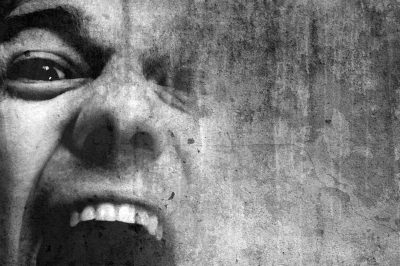 When the editors at Patheos posted my column on “Protestants and the Catholic Bishops” a week ago, they hi-lighted the passing reference that I made to the role that anti-Catholic prejudice might be playing in the article’s tagline. Based on the work of Baylor’s Philip Jenkins, who describes anti-Catholicism as America’s last acceptable prejudice, I was fairly certain that it was at least one factor at work in shaping Protestant responses.
When the editors at Patheos posted my column on “Protestants and the Catholic Bishops” a week ago, they hi-lighted the passing reference that I made to the role that anti-Catholic prejudice might be playing in the article’s tagline. Based on the work of Baylor’s Philip Jenkins, who describes anti-Catholicism as America’s last acceptable prejudice, I was fairly certain that it was at least one factor at work in shaping Protestant responses.
But I winced at featuring the observation, because while I felt that there was undoubtedly prejudice in the mix, I was more immediately interested in challenging Protestants to give ecclesiological and theological reasons for their own reaction, rather than relying on politics. After all, if churches aren’t going to think theologically about the world around them, what point is there in having them? (I wasn’t particularly successful, sadly. One or two people “got it.” But the conversation remained in a largely political vein.)
What has struck me in the last week in the comments that have been offered is how much evidence there is that Jenkins is right There is a lot of anti-Catholic sentiment out there and people wear it on their sleeves. (And I am not the only writer on this site to have noticed it.)
Some of that is deeply rooted in long-standing Protestant stereotypes. I can’t count the number of people who know little or no church history, who repeat generalizations about Catholic faith and practice that not only is not now true, but never was. Others will (and did, in response to the column) ring the changes on the pedophilia crisis.
To say that the Catholic Church has failed spectacularly from time to time in its history is to belabor the obvious. Futhermore, I don’t believe that any serious Christian — or devoted Roman Catholic, for that matter — would offer a moment’s defense of the way in which the church’s hierarchy handled the pedophilia charges, or failed to protect their children. The miscarriage was and is appalling, callous, and obscene.
I also understand the prejudice from the inside out. I worked in a Catholic hospital for four years when I was a teenager and, as a result, I frequently dated Roman Catholic girls. But after the second or third date my father regularly warned me about “getting serious” about “them.” It was only years later that I discovered the engine of his prejudice.
My grandfather was Roman Catholic and was excommunicated when he married my grandmother in her protestant, Evangelical and Reformed Church. But to his dying day, he kept a rosary and a Catholic missal on his bedside table. As he was dying — painfully — of esophageal cancer, he asked for and was refused last rites by the same church that had excommunicated him. And that was the source of my father’s global prejudice about all things and people Catholic.
Taking both the public and the personal into account, however, I don’t believe that the venomous, global prejudice I saw on display this week is justified.
My father was also prejudiced toward African Americans and harbored sweeping, unexamined, damning convictions about the motives that drove Martin Luther King. How do we justify drawing the line on one prejudice, while giving full-throated defense to the other?
Was my father right in the first case and wrong in the second because he had personal history with Roman Catholicism and next to none with African Americans? Was he right about Catholics and wrong about blacks, because bashing Catholics is fashionable among progressives, but racial prejudice isn’t? Or is the difference one of religion versus race and in progressive circles there really is a war on against (some, not all) religions? Or is the current debate really just about presidential politics — in which case no one is allowed an opinion that won’t construed as a means of scoring points for a particular party?
The answer, of course, is that prejudice cannot be justified on any of the grounds described above. Whether we are sympathetic in large part, or not at all, with another group of people, we are obliged to consider what their motives might be as they describe them. We are also obliged to debate the merit of the arguments that they make on the merit of the arguments that they offer.
We have fed the hermeneutic of suspicion long enough. Whatever its supposed merits, its exclusive application has poisonous consequences. We no longer debate an issue, examine the evidence, and judge an argument’s merits. We sandbag others with anything and everything we can find in their past; we attribute sinister motives to them; or we simply throw dirt until something sticks.
This is a dangerous beast we are feeding and it will eat everything we are willing to give it: respect, civility, reason, freedom, democracy, culture, friendship, conversation, community — the fabric of civilization itself.
Do we really want the dystopian nightmare of a Mad Max world in which we run one another off the information highway in a rage that we can no longer explain? Do we really think that we can justify prejudice, crude name-calling, and violent language, just because (after all) at least I’m not “one of those?”
Spiritually and morally there is no defense for it and, practically speaking, there is nothing to be said for the results. What might be argued is one of history’s great democracies is fast becoming a landscape of warring tribes, each shouting at one another across ether.












